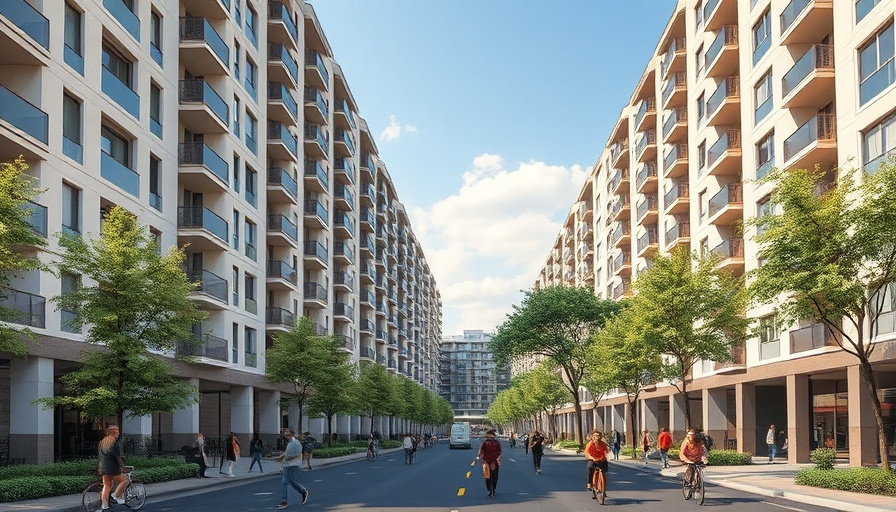
Wates Begins Ambitious Housing Project in Harrow
In the heart of Harrow, a transformative housing initiative is taking shape. Wates Residential has submitted a comprehensive plan to redevelop the former council civic center into a vibrant community, featuring over 1,000 new homes. This development is part of a broader collaboration with Harrow Council, aimed at tackling the urgent housing shortage facing London.
The Poets’ Corner Scheme: A Closer Look
The first phase of this ambitious project, known as the Poets’ Corner scheme, outlines plans for 530 build-to-rent homes nestled in blocks that rise between five to twelve stories. The project's design is spearheaded by Sheppard Robson, an established name in architectural circles. With an anticipated construction cost nearing £360 million, this initiative is set to become a significant landmark for the area.
A Commitment to Affordable Housing
As part of the housing crisis response, Wates plans to ensure that approximately 13% of the new residences will be classified as affordable housing. This decision reflects a growing recognition of the need for varied housing options within urban landscapes, particularly in London where the cost of living and rental prices continue to surge.
From Vision to Reality: Construction Timeline
Construction is expected to commence in 2026, with subsequent phases planned to follow. These include further developments on two additional strategic sites: Peel Road, adjacent to Wealdstone High Street, and Byron Quarter, which is located next to Byron Park. The total projected investment for the entire regeneration scheme stands at a remarkable £690 million, encompassing the construction of 1,500 new homes over the next decade.
The Economic Impact and Future Prospects
The implications of this development extend beyond housing. The investment represents a substantial boost to the local economy, generating employment opportunities during and post-construction. As the project progresses, Harrow is positioning itself as a significant stakeholder in London's growth, particularly in the housing sector where demand far outstrips supply.
Challenges Ahead and Community Reception
While the project has been met with optimism, concerns about managing the challenges associated with increased density and infrastructure strain have been raised. The integration of these new developments into the existing community fabric is critical for ensuring a harmonious coexistence of new and long-term residents.
What These Changes Mean for Builders and Contractors
The Poets’ Corner initiative is not just a milestone for residential living but serves as a wake-up call for builders and contractors. Those in the field must pivot to meet the evolving demands of urban housing—prioritizing sustainability, affordability, and community integration. Wates' approach could set a precedent for future collaborations between private developers and local councils, illustrating a model of how private investment can effectively address pressing social issues.
The Importance of Infrastructure in Housing Development
As Harrow takes steps towards advancing its housing strategy, it is increasingly clear that robust infrastructure planning will play a crucial role. The successful implementation of such large-scale projects, particularly within urban centers, demands that infrastructure—transport, schools, and healthcare facilities—keep pace with residential growth.
 Add Row
Add Row  Add
Add 




Write A Comment